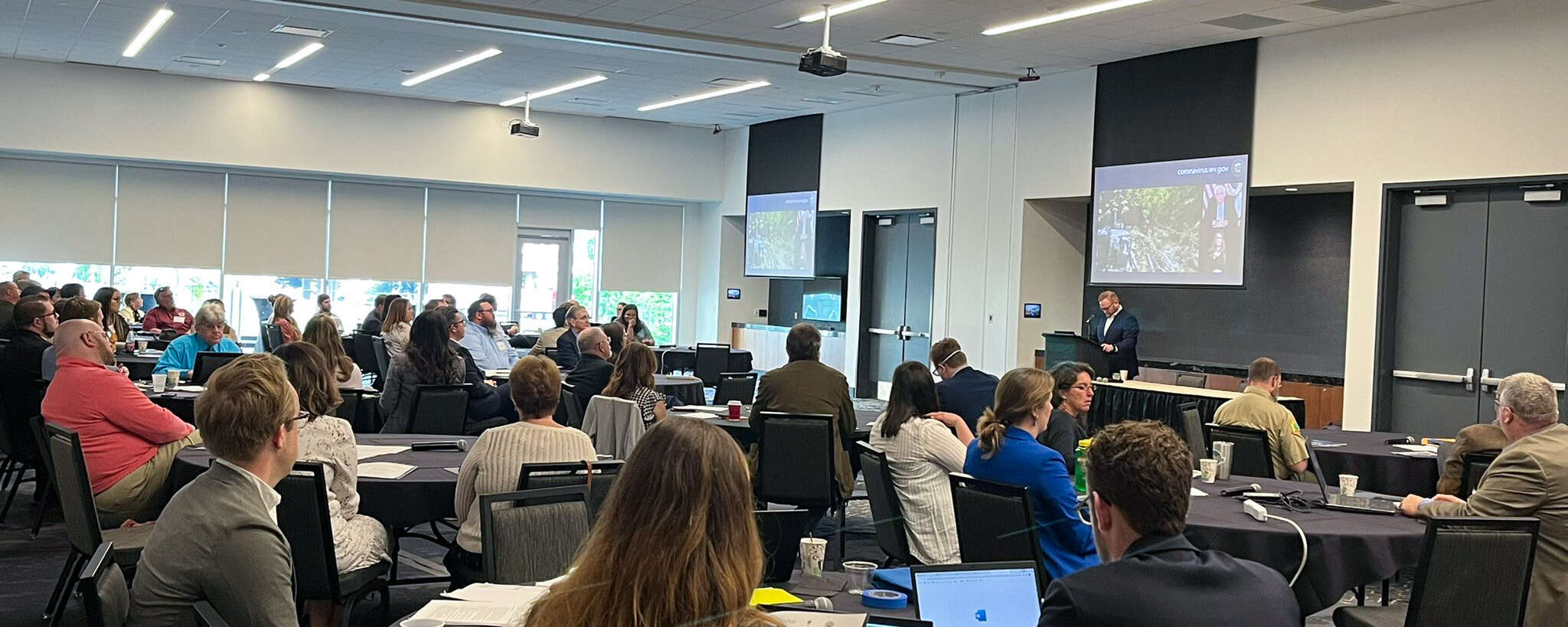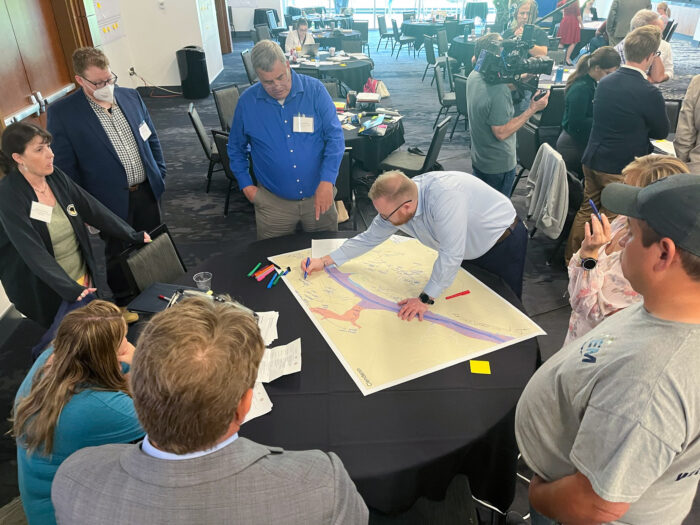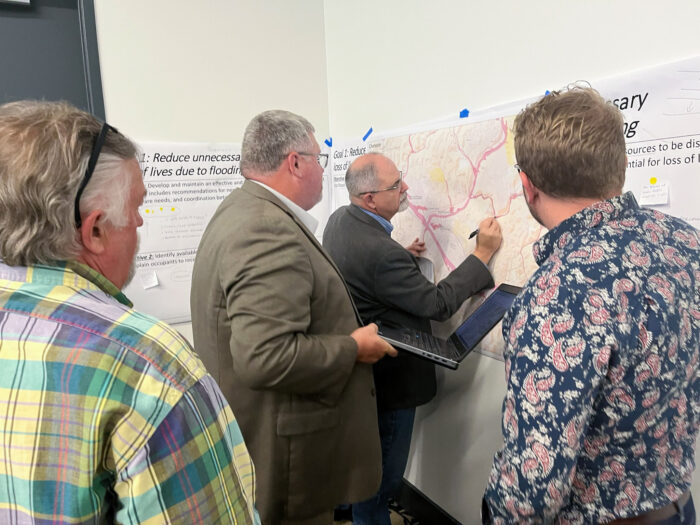In the past nine months, West Virginia has experienced two devastating floods, prompting the Governor, Jim Justice, to issue a declaration of a State of Preparedness for all 55 counties due to the continued risk of flooding. Most recently, Huntington Mayor Steve Williams issued an emergency declaration after several inches of rain flooded streets in and around the Ohio River Community, covering cars and homes in its path. First-responders helped to guide families out of their homes in some areas.
In response to this unprecedented flooding, leaders from the SBP Advise team and The Pew Charitable Trusts hosted a flood symposium sponsored by the State Resiliency Office at the Charleston Coliseum and Convention Center. The symposium provided disaster recovery resources and disaster mitigation planning tools for elected leaders and state officials. The symposium marks the beginning of a new initiative to update West Virginia's 18-year-old flood protection plan. More than 80 registrants representing the state, county, and city officials participated in the two-day symposium to lay the groundwork for updating the state's current flood protection plan.

Matthew Sanders, senior manager of flood-prepared communities for The Pew Charitable Trusts, said West Virginia's recent flooding, which reportedly damaged more than 100 homes, makes the event even more important.
"The point of this plan is to really begin to think out further into the future and anticipate what types of flooding events are going to be more likely so that the state can take mitigating action to reduce that risk," Sanders explained. "That's really the only way to get outside of this toxic cycle of 'disaster, response, recovery.' "


The symposium featured SBP’s Advise Team experts JR Sanderson, Senior Government Advisor, and Michelle Stinnett, Resilience and Recovery Fellows Program Director.
JR Sanderson kicked off the symposium discussion by providing local officials with information critical to building a Culture of Preparedness at the individual, community, and State levels. This conversation is essential to understanding West Virginia's unique approach to creating a plan that provides resiliency in future disasters.
After an overview of the challenges, Michelle Stinnett led a discussion on funding Flood Resilience in West Virginia with West Virginia State leaders, including State Auditor John McCuskey, Community Advancement Director Jennifer Ferrell, and Senator Chandler Swope. Providing resources and a clear road map facilitated by Pew and SBP experts will aid West Virginia leaders in updating the current plan and building future resilience project ideation.
After the symposium, the State's Resiliency Office is tasked by state code to review the flood plan annually and update it every two years. Robert Martin, West Virginia’s State Resiliency Office Director, said the outcome of the symposium is a six-month plan. In early 2023 Martin will present the plan to the legislative flood committee.

